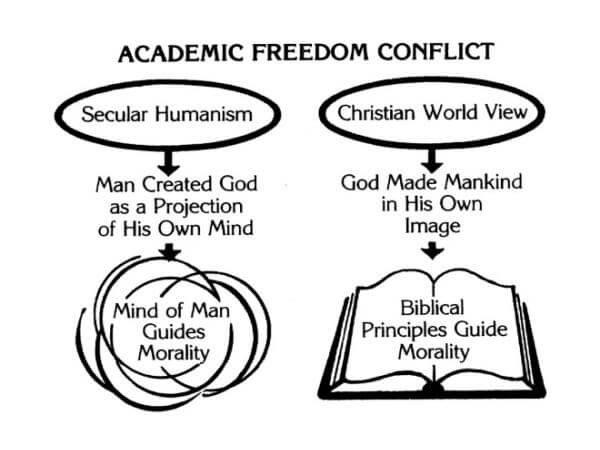To understand the concept of forcing religion on others, delve into the Introduction of the article “What does the Bible say about forcing religion on others?” This section will provide insight and shed light on the sub-sections: Understanding the concept of forcing religion on others.

Understanding the concept of forcing religion on others
Forcing religion on others is a complex concept. It involves imposing religious beliefs and practices onto people who may not share the same faith, or may even have no religion. Coercion of this kind raises ethical questions and challenges freedom and autonomy.
Various forms of religious coercion exist, such as societal or legal pressure, indoctrination, or even physical harm. It disregards personal choice and violates individual rights to thought, conscience, and religion. Forced conversions or attempts to suppress alternate beliefs hinder diversity and infringe on human rights.
This act can lead to social unrest and conflict. It creates divisions among communities, fostering intolerance instead of promoting harmony. Democracies, however, protect religious freedoms and allow diverse traditions to coexist peacefully.
The impact of forcing religion on others is far-reaching. It severs the bonds that hold societies together, eroding trust between neighbors and undermining unity among citizens. Respect for personal autonomy should be prioritized over controlling someone’s spiritual journey.
Pro Tip: Dialogue and mutual understanding promote religious diversity within communities. Inclusivity fosters tolerance, compassion, and ensures personal liberties are upheld in society.
The Importance of Free Will in Religion
To understand the importance of free will in religion, delve into the biblical concept and explore Scriptures that emphasize individual choice in matters of faith. Discussing free will and exploring relevant Scriptures provide a comprehensive understanding of how the Bible addresses the significance of personal autonomy in matters of belief.
Discussing the biblical concept of free will
The Bible’s concept of free will is a key part of many religious beliefs. It means humans can make decisions without external control or pre-determined results. This concept shows the importance of taking personal responsibility and being accountable for one’s actions in the spiritual world.
Scriptures like the Bible show free will in different stories and teachings. For example, Adam and Eve in the Garden of Eden had the freedom to obey God or give in to temptation. Their decision had serious consequences, which shows how much individual choice affects life.
Free will also helps people form relationships with their gods. It allows them to take part actively in their faith, building meaningful connections based on personal trust, not blind obedience. Through free will, people can deepen their faith and have an intimate bond with the divine.

The biblical concept of free will also helps answer philosophical debates about human independence and divine knowledge. Some may think free will and a supreme being don’t fit together, while others say that real love and loyalty come from voluntary choices, not predetermined ones.
Recognizing free will’s importance encourages us to look at our own lives and decide how to grow spiritually. We should think carefully about our decisions, knowing they have consequences on the earthly and spiritual realms. By accepting our capacity for choice, we open ourselves to transforming experiences and self-improvement.
Exploring Scriptures that emphasize individual choice in matters of faith
Religious scriptures emphasize the power of individual choice in matters of faith. From Christianity to Islam, Hinduism to Buddhism, many beliefs stress personal agency. The Bible speaks of Adam and Eve’s decision to eat the forbidden fruit or Moses leading the Israelites out of Egypt. These texts provide guidance, but also leave room for personal interpretation.
A great example of individual choice in spiritual matters is found in Sikhism. Guru Nanak Dev Ji was born into a Hindu family, but chose to seek truth and enlightenment. He experienced different faiths and emphasized the importance of one’s own spiritual path. Making conscious choices based on inner conviction was key.
Why force someone to believe in a higher power? Instead, why not force them to listen to your terrible jokes?
The Dangers of Forcing Religion
To better understand the dangers of forcing religion, delve into the negative consequences of imposing beliefs on others. Also, explore instances in the Bible where coercion led to negative outcomes. In this section, discover the potential harm that comes from trying to forcibly impose one’s religious views onto others, and examine biblical examples that highlight the negative outcomes of such actions.
Examining negative consequences of imposing beliefs on others
Forcing one’s religious beliefs onto others can have severe repercussions. It is essential to respect the autonomy and freedom of choice of others in matters of faith.
Such practices can lead to:
- Personal agency being lost;
- Individual rights being infringed on;
- Interreligious tension and conflict;
- Mental and emotional distress;
- Stifling intellectual growth.
We must recognize these consequences and aim to promote inclusivity, tolerance, and acceptance of diverse beliefs. Respecting others’ choices in matters of faith guards fundamental human rights as well as cultivates peaceful coexistence in our ever-more diverse world.
Rather than being frightened by differences, let us embrace them. By allowing individuals the freedom to explore their own spirituality, we can foster a harmonious society that is understanding and united. We must not overlook the risks of coercing religion and strive towards creating a world where everyone has the freedom to choose their spiritual journey. Only through respecting each other’s autonomy can we attain peace, acceptance, and true connections among humans. Don’t let fear divide us, but rather, celebrate the beauty of our differences. From the miracle of turning water into wine to the cautionary tale of turning believers into skeptics, we must remember that forcing religion is not a blessing.
Discussing instances in the Bible where coercion led to negative outcomes
The Bible offers many examples of the dangers of trying to coerce faith. King Saul and the Amalekites is a prime example: despite God’s orders, he kept the king and livestock – this disobedience caused his downfall. In the New Testament, the Pharisees and religious leaders tried to trap Jesus with questions about paying taxes to Caesar – this backfired, leading to a loss of public support.

These stories show that coercive actions often lead to division, resentment and even violence. Imposing beliefs on others takes away freedom and authenticity. We must remember that true faith should be freely chosen, not enforced.
Using power or influence to ‘sell’ religion is like a pop-up ad – no one wants it. This goes against principles of love and respect, and risks distorting spirituality.
The Bible’s Teaching on Sharing Faith
To better understand the Bible’s teachings on sharing faith, delve into the biblical mandate to spread your beliefs. Differentiate between sharing and forcing, as the distinction is crucial. Additionally, explore biblical examples of effective and respectful ways to evangelize, highlighting the significance of respectful communication.
Exploring the biblical mandate to share one’s faith
The Bible teaches us the importance of spreading the word of salvation. Christians are called to share the Good News through prayer, study and personal encounters. We are also inspired by the disciples’ boldness and unwavering commitment to proclaim Jesus’ message. Jesus Himself commanded His followers to go into all nations and make disciples.
Therefore, believers should embrace their role as ambassadors for Christ. Sharing our faith isn’t an obligation, but rather an invitation to join God’s redemptive work. We can make a difference in people’s lives by being authentic and stepping out in faith.
Understanding the difference between sharing and forcing
Expressing one’s faith without pressure is key. Pushing beliefs onto others causes resentment and can be harmful. Respect for autonomy lets us converse openly and without conflict. Stay away from manipulation and heated debates. Diversity of opinion brings understanding to relationships. The goal should be to spark interest, not provoke confrontation.
To comprehend the difference between sharing and forcing, it’s important to note each person’s journey in faith is unique. Don’t be tempted to prod others towards a certain belief system. Instead, take a kindhearted approach where empathy trumps persuasion.
Tip: Listening to others’ views without interruption or dismissal helps grasp divergent perspectives while preserving communication. From Noah’s Ark to Jonah and the whale, the Bible has more creative ways of spreading the word than a crazed door-to-door salesman!
Highlighting biblical examples of effective and respectful evangelism
The Bible has examples of effective and respectful evangelism. Such as Philip’s story with the Ethiopian eunuch, Paul’s approach to audiences, and Jesus’ interactions with people.

Philip humbly and understandingly shared the scriptures with the eunuch, leading him to accept Jesus as his Savior.
Paul used cultural context to share the Gospel message with different audiences.
Jesus used parables to explain spiritual truths in a relatable way.
A true story gives an example of effective evangelism. Sarah had a longing for something more, until a stranger on her commute showed her genuine empathy and kindness. This encounter planted a seed of curiosity in her heart.
These examples demonstrate principles such as being sensitive to people’s needs, meeting them where they are emotionally and spiritually, and conveying God’s love without judgment or condemnation.
So, when sharing the message of faith, we should consider adapting our approach to connect with others, showing love and understanding, and sharing personal experiences that resonate with their struggles. Respect people’s choices!
Frequently Asked Questions
1. Is it okay to force religion on others according to the Bible?
No, the Bible does not condone forcing religion on others. In fact, it promotes freedom of choice and respect for the beliefs of others.
2. If I try to convert someone to my religion, am I going against what the Bible teaches?
The Bible encourages sharing one’s faith with others, but not through force or coercion. Rather, it advises believers to share their faith in a respectful and loving manner.
3. What are the consequences of forcing religion on others?
Forcing religion on others can lead to resentment, conflict, and even violence. It can also undermine the true essence of religion, which is to promote peace, love, and compassion.
4. What does Jesus teach about forcing religion on others?
Jesus teaches his followers to love their neighbors as themselves and to treat others with kindness and respect. He also emphasized the importance of free will and gave people the freedom to choose whether or not to follow him.
5. How can I share my faith without forcing it on others?
You can share your faith by leading a good example, by living out your beliefs and values in your daily life. You can also share your faith through conversations and by answering questions about your beliefs when asked.
6. What is the Golden Rule and how does it apply to forcing religion on others?
The Golden Rule is to do unto others as you would have them do unto you. This means treating others with the same respect and dignity that you would want for yourself. It applies to forcing religion on others because it reminds us to treat others as we would want to be treated, which includes respecting their beliefs and not forcing our own on them.
Conclusion: Balancing Faith and Respect for Others’ Choices
Balancing faith with respect for others’ choices is key for religious harmony. The Bible shows free will is important and we must respect other people’s beliefs. It advises against forcing religion onto others, instead promoting a gentle and respectful approach to sharing faith.
Respecting others’ choices means we understand everyone has the right to their own beliefs, and not to be coerced into a particular religion. The Bible encourages believers to share their faith through love, kindness, and compassionate actions, not by forcing it on people.
A unique point to note is the concept of evangelism in Christianity. While Christians are told to spread their faith, they’re also commanded to do it in a gentle and respectful way (1 Peter 3:15). This means engaging in dialogue and understanding others’ perspectives without trying to convert them.
To balance faith and respect for others’ choices, we need to approach conversations about religion with an open mind and a willingness to listen. We can exchange ideas without trying to impose our beliefs. By showing interest in understanding different opinions, we can create an atmosphere of respect.
We can also lead by example. Actions speak louder than words, so living out our faith humbly and compassionately can have a big impact on others. Showing the positive effects of our beliefs through acts of love, generosity, and forgiveness may get people thinking.
Ultimately, finding a balance between faith and respecting others’ choices means understanding true conviction comes from within, not from outside pressure or persuasion. We must share our faith respectfully, leaving space for people to make their own decisions without feeling forced or judged.
By following these suggestions based on biblical teachings, we can foster an environment where religious diversity is celebrated, while staying true to our own faith. Balancing faith and respect for others’ choices brings peace and harmony, as well as meaningful engagement and understanding between people of different beliefs.








